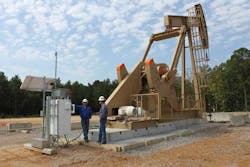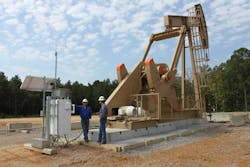Mississippi: New, lower severance tax regime creates positive cash flow for horizontal drilling projects
The Tuscaloosa Marine shale, located along the Gulf Coast in both Louisiana and Mississippi, is underexplored. "We're in the midst of trying to develop the commercial potential of the Tuscaloosa Marine shale resource," said Doug Hock, spokesman for Encana Oil & Gas (USA) Inc. "Our focus is on reducing well costs."
On April 23, 2013, Mississippi Gov. Phil Bryant signed into law several energy bills recently passed in the state's legislature, one of which will have a direct impact on shale development along the Gulf Coast.
Energy Bill SB 1698 reduces the severance tax on production from wells drilled horizontally in Mississippi from 6% to 1.3% for a period of 24 months or until payout of the well. The law is scheduled to take effect on July 1, 2013, and will expire June 30, 2018. The bill was sponsored by D-Angela Cockerham and it passed with a majority in both the state's House and Senate.
The new law is expected to provide incentive for operators to drill in Mississippi's burgeoning Tuscaloosa Marine shale. "This equates to roughly $700,000 to $800,000 of cash flow uplift on each of our TMS wells and supports our efforts to meet commerciality thresholds for this play," said Doug Hock, spokesman for Encana. Reducing the tax owed on producing wells in the short term is encouraging for Encana.
The company has six wells producing in the Tuscaloosa Marine shale and two additional wells are expected to begin production in the second quarter of 2013, the company said.
In February, Goodrich Petroleum Corp. reported that its Crosby 12-H1 well in Wilkinson County, Miss., had a current production rate of 1,250 boed and a 24-hr average of 1,130 boed, comprising 1,050 b/d of oil and 469 Mcfd of gas with 2,700 psi pressure on a 15/64-in. choke. Encana and Contango Oil & Gas Co. each have a 25% working interest in the well, and Goodrich has 50%.
Goodrich holds 135,000 net acres in the Tuscaloosa Marine shale. According to the company's most recent management presenation, it will dedicate $50 million in capital expenditures in the region, which is 25% of its budget for 2013.
Goodrich estimates that a base case EUR for its Tuscaloosa Marine wells is 600 MMboe with the high case nearing 800 MMboe. To date, its wells have produced 94% oil and 6% high btu gas, the company said.
Goodrich Petroleum has stated in company presentations that single well costs are typically $13 million with an additional $10 million in development costs. A discounted severance tax on producing horizontal wells could alleviate some of this expense.
The Tuscaloosa Marine shale occupies six counties in Mississippi: Adams, Amite, Franklin, Pike, Walthall, and Wilkinson. In addition to Encana and Goodrich, Amelia Resources, Devon Energy, and Encore Acquisition (Denbury Resources) hold acreage in the play.

